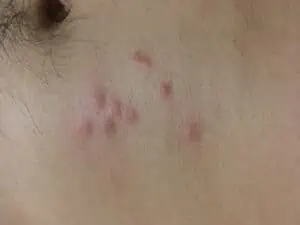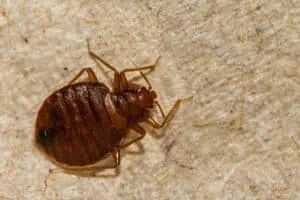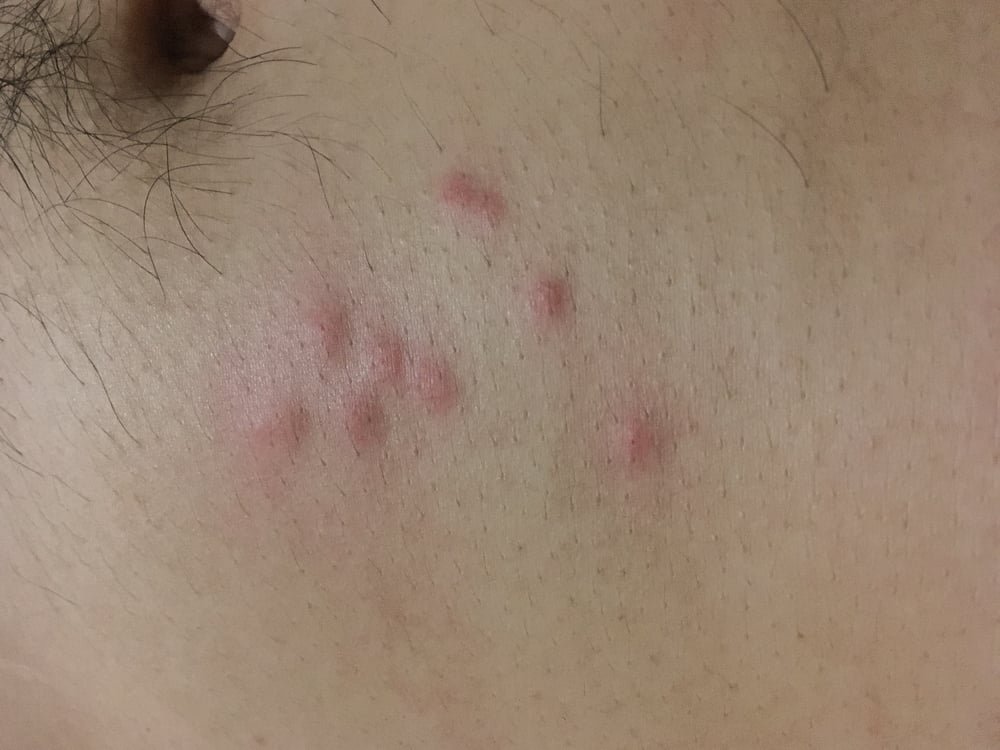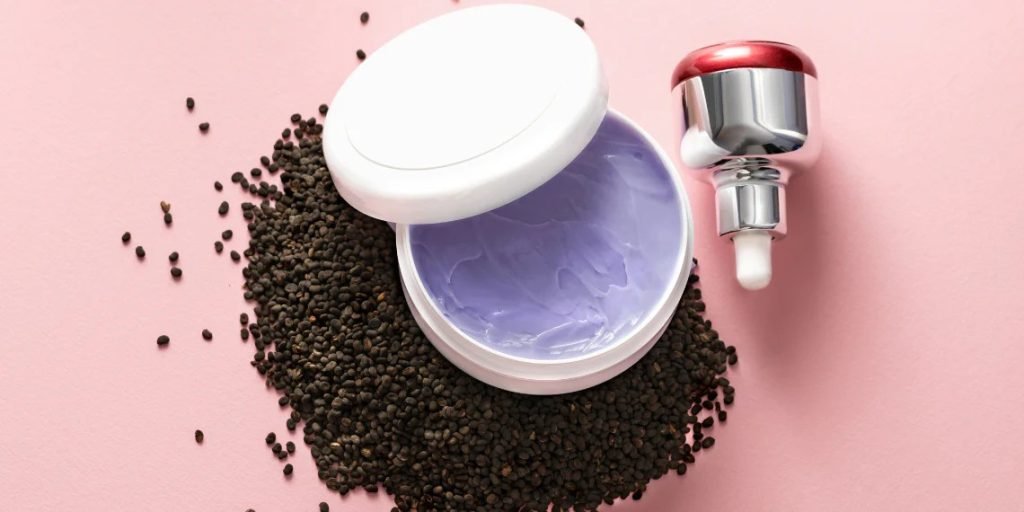[ad_1]


Medical reviewer: Daniel Gutierrez, PA-C
When you pull the sheets off your hotel room bed, do you pause and think, “What do bed bugs look like?” Have you ever woken up in the morning to a bunch of little red bumps and asked yourself, “What does a bed bug bite look like?”
Bed bug bites are generally more of a nuisance than a danger, but spotting a bed bug or even thinking about getting bitten at night can cause some seriously creepy situations, not to mention insomnia. Read on to learn answers to the most common questions people have about bed bugs and bed bug bites, as well as what to do if these insects invade your home.
Do you see bed bugs?
You can sometimes spot adult bed bugs, but they hide during the day and are small enough (about the size of an apple seed) that you might not notice them unless you look carefully.
What do bed bugs look like?
Bed bugs are small, flat, brown and oval in shape. It has 6 legs and 2 antennaE. If they have recently been fed, they will be longer, less flat, and reddish-brown in color. They can’t jump or fly, but they can crawl quickly.


What do bed bug bites look like?
Everyone reacts differently to bed bug bites. Some people show little to no bite marks, but 70% develop raised bumps (bulges) that may be red on light skin tones or purple on dark skin tones. A darker area may be visible in the center where bed bugs have pierced the skin. Welts often appear in clusters of three to five and follow a zigzag pattern.
It’s easy to confuse bed bug bites with mosquito bites or tick bites. See a Dermatologist For accurate diagnosis.
How big are bed bug bites?
Bed bug bites can be as small as 2mm to 4mm, or larger depending on the sensitivity of the bite and the amount of inflammation that occurs around the center. Some bed bug bites develop into itchy, fluid-filled bumps (breaks) that can be more than 2 inches in diameter.
photo of bed bug bites
Examples of bed bug bites include:
Do bed bug bites itch?
Severe itching is a common symptom of bed bug bites, but it may not occur right away when you first get bitten. It usually takes several days or up to two weeks for the body to react to the bite. If the infection persists and the bugs continue to bite, the skin becomes more sensitive to the bites and symptoms may appear within seconds.
Where do bed bugs bite?
Bed bugs typically bite areas of skin that are exposed when you sleep. Common areas include the arms, hands, face, and neck, but more areas may be affected if you wear loose-fitting pajamas or sleep naked.
Can bed bugs bite through clothes?
Bed bugs cannot penetrate fabric. However, if your pajamas are loose and bugs can crawl under them, there may be bite marks on areas of skin that are covered.
Are bed bugs dangerous?
Can bed bug bites hurt? In most cases the answer is no. However, excessive scratching of the bite area can damage the skin and make it susceptible to skin infections.
In rare cases, bed bug bites can cause a serious or life-threatening allergic reaction. If you have signs or symptoms of an allergic reaction, seek emergency medical care right away. According to the American Academy of Dermatology, these include:
- Blisters, especially large ones
- shortness of breath
- Fever
- swollen tongue
- Irregular or strong heartbeat
How to Check for Bed Bugs
To find bed bugs, try the following at night: Turn off the lights, wait a few minutes, then shine a flashlight at the places bed bugs like to hide:
- Mattresses and box springs, especially near plumbing, tags, seams, and buttons.
- There were cracks in the bed frame and headboard.
If the infestation is severe, bugs may hide in other places, including:
- Under wallpaper and wall hangings
- At the folded part of the curtain
- On chairs or sofas, including under or between cushions
- Where the wall and ceiling meet
- At drawer joints
- under the edge of the carpet
- behind outlet cover
Bed bugs can be difficult to spot, so the best way to identify them is to look for traces they leave in your bedding. Look out for reddish, rust-colored stains, which may be broken bed bug remains, and dark spots slightly larger than a period, which may be bed bug droppings. Using a magnifying glass, you can even see tiny bed bug eggs, eggshells, or the light yellow shell shed by baby bed bugs.
Even the smell of a room can indicate a serious bed bug infestation. Bugs communicate with each other by producing musty, sweet-smelling chemicals.
How to Treat Bed Bug Bites
In most cases, bed bug bites can be treated simply at home by cleaning them with soap and water to prevent infection and applying a cream or lotion such as 1% hydrocortisone, calamine lotion, or a mixture of baking soda and water. Cold compresses may also help with itching.
If you have multiple bites, skin infections, allergic skin reactions (swollen skin or hives) or blisters to the bite area, see a dermatologist. You may need treatment such as:
- Prescription antihistamines or corticosteroids to control itching
- For severe allergic reactions, injections such as antihistamines, corticosteroids, or epinephrine are given.
- Antiseptics if you have a minor infection
- antibiotics for more serious infections
How to Prevent Bed Bug Bites While You Sleep
It is almost impossible to completely eliminate bed bugs from your home without professional help, so your best bet is to contact an exterminator. Meanwhile, to avoid getting bitten at night, you can take the following steps:
- Wear pants, long sleeves, and pajamas that fit snugly at the ankles and wrists.
- Vacuum the bed, floor, moldings and other potentially infested areas and use attachments to access crevices. When you’re done, throw away the vacuum bag. Another option is to use a handheld steam cleaner to kill bugs with heat.
- Place bed bug deterrents (special plastic dishes sold online) under each bedpost to catch bugs trying to climb up the bed from the floor.
- Buy a box spring with a mattress cover and zipper.
- Wash your bedding regularly. Use hot water and dry at the highest temperature.
How long do bed bug bites last?
Insect bites usually take one to two weeks to heal. Do your best to avoid scratching while it heals. A hands-off approach not only lowers the risk of infection but also helps prevent post-inflammatory symptoms. Hyperpigmentation If you have dark skin.
Writer: Jessica Brown is a health and science writer/editor based in Nanuet, New York. She has written for Prevention magazine, jnj.com, BCRF.org, and many other outlets.
[ad_2]






